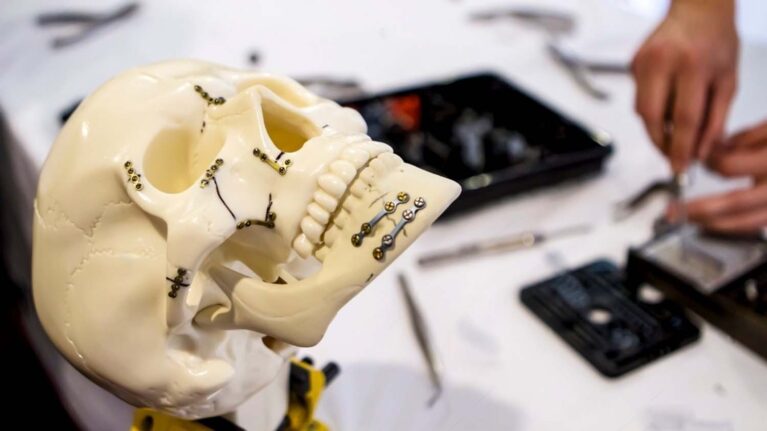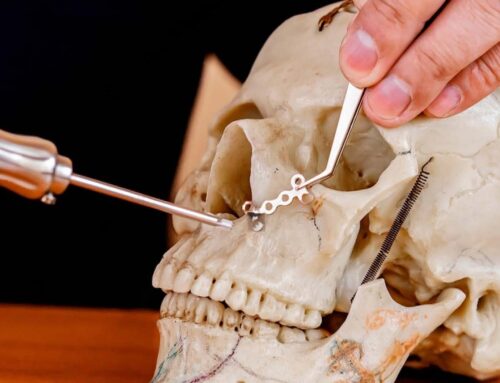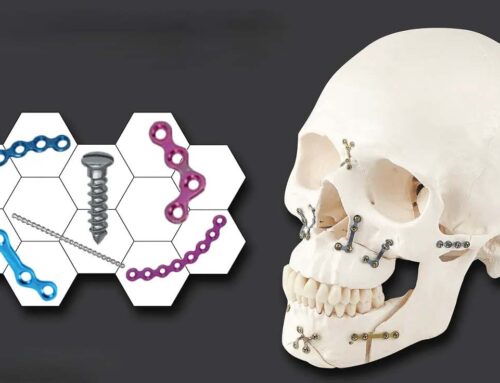Cranio-maxillofacial (CMF) screws and implants are specialized medical devices used in the surgical treatment of injuries, congenital defects, and reconstructive procedures of the skull, face, and jaw. These implants provide structural support, stabilization, and fixation for bones during healing.
Applications
CMF screws and implants are used in a variety of medical procedures, including:
- Trauma Surgery: Treatment of fractures in the skull, mandible, or facial bones.
- Orthognathic Surgery: Correction of jaw deformities to improve function and aesthetics.
- Reconstructive Surgery: Repair of defects caused by congenital conditions, tumors, or trauma.
- Neurosurgery: Skull fixation during craniotomy procedures.
- Dental and Maxillofacial Applications: Bone graft fixation and dental implant anchoring.
Types of CMF Screws and Implants
Screws
CMF screws vary based on their function, material, and size. Common types include:
- Cortical Screws: Used for fixation in dense cortical bone.
- Cancellous Screws: Designed for use in softer cancellous bone.
- Self-Tapping Screws: Do not require pre-drilling, reducing surgery time.
- Locking Screws: Provide secure fixation by locking into plates, reducing micro-movements.
- Resorbable Screws: Made from bioresorbable materials that dissolve over time, eliminating the need for removal surgery.
Plates and Meshes
- Rigid Fixation Plates: Used to stabilize fractures and osteotomies.
- Resorbable Plates: Made from polylactic acid (PLA) or polyglycolic acid (PGA), which gradually dissolve.
- Titanium Meshes: Used for reconstruction in cases of bone loss.
Custom Implants
- Patient-Specific Implants (PSI): Designed using 3D printing and CT scans for precise reconstruction.
- Alloplastic Implants: Used for orbital, nasal, or jaw reconstruction.
Materials Used
CMF implants are made from biocompatible materials to minimize rejection and infection risks:
- Titanium and Titanium Alloys: High strength, corrosion-resistant, and biocompatible.
- Stainless Steel: Occasionally used, but less common due to lower biocompatibility.
- Bioabsorbable Polymers: Polylactic acid (PLA), polyglycolic acid (PGA), and polydioxanone (PDO) dissolve over time.
- PEEK (Polyether Ether Ketone): A lightweight and radiolucent alternative to metal implants.
Surgical Techniques and Fixation
- Rigid Fixation: Uses screws and plates to provide strong stabilization.
- Miniplate Osteosynthesis: Small plates with screws provide flexible fixation, commonly used in mandibular fractures.
- Resorbable Fixation: Used in pediatric cases to avoid future surgeries.
Advancements in CMF Implants
- 3D Printing and CAD/CAM Technology: Enables precise patient-specific implant designs.
- Smart Implants: Incorporate sensors to monitor healing.
- Biodegradable Materials: Reduce the need for secondary surgery.
Potential Risks and Complications
- Infection: Can occur if proper hygiene and post-operative care are not followed.
- Implant Failure: May result from material fatigue or improper placement.
- Foreign Body Reaction: Some patients may have allergic reactions to implant materials.
- Resorption Issues: In some cases, bioresorbable implants degrade too quickly or too slowly.
Conclusion
Cranio-maxillofacial screws and implants play a crucial role in modern reconstructive and trauma surgery. With continuous advancements in materials and technology, these implants are becoming safer, more efficient, and increasingly customized for individual patient needs.





Leave A Comment